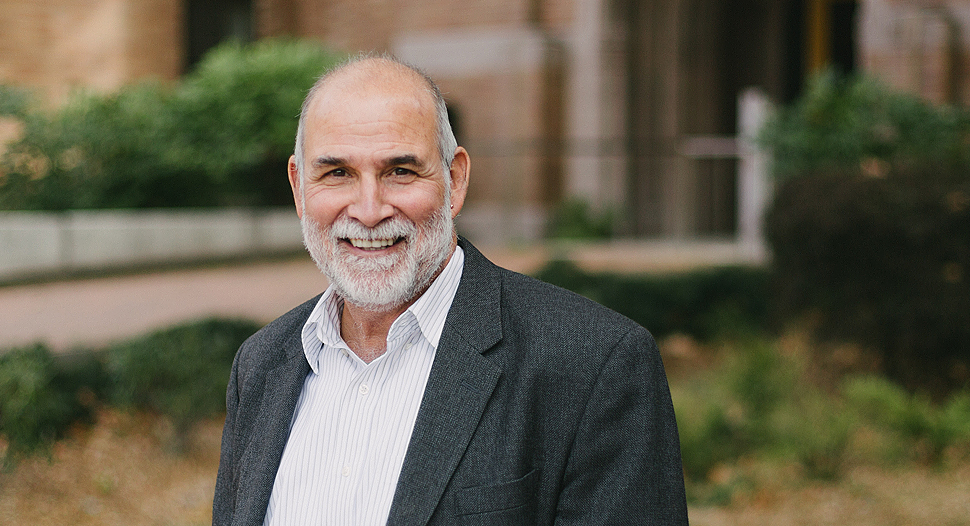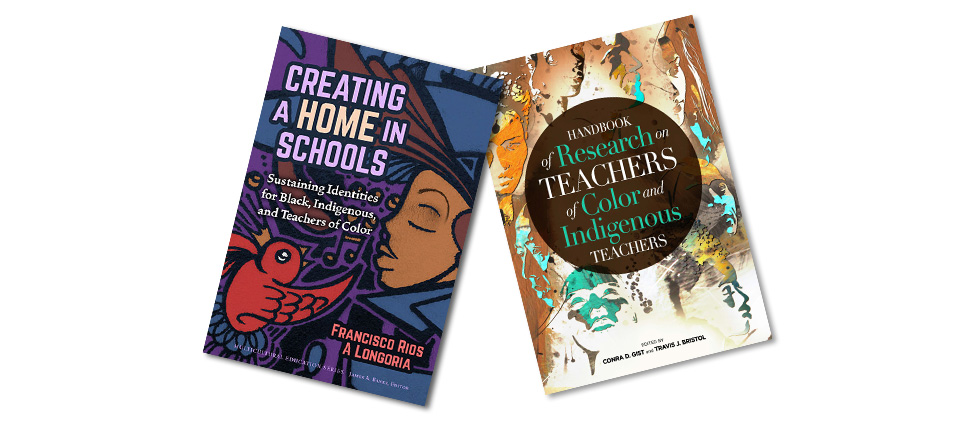
Retired Western Washington University Dean and Professor Francisco Rios didn’t have plans to go to college until a teacher of color put the idea into his head. “Up until then, it wasn’t on my radar,” he says. “When I did end up pursuing college, during my first year, I thought, ‘I want to be like that teacher who saw something in me I didn’t see in myself.’” He credits that teacher and several other teachers of color in the Denver Public Schools system as pivotal to his education journey.
Still, Rios cautions against thinking of teachers of color as a panacea to racial inequities in school systems. “That’s a burden to put on any individual, let alone a new teacher to be transformative agents,” he says.
He wants to move beyond this limited view, including thinking beyond the role model or an individual she-ro or he-ro. It’s also why he isn’t too keen to be the subject of an article. “This isn’t about individual scholarship; it’s about partnerships,”‘ he says, and he’s one contributor among many.
To give a fuller picture of all the various roles and relationships in this work, he describes where his scholarship started. After teaching for 13 years, he decided to get his doctorate degree to better understand how everyday teachers make sense of diversity in their classrooms. “Then I moved to how teachers of color think about diversity in their classrooms and how they make sense of multicultural education as an academic field.”
That led to work with academic partner Alice Quiocho reviewing research about teachers of color. They focused on expanding the discourse about all the assets teachers of color bring to students, schools and the teaching profession beyond being role models.
Through this exploration, a key idea emerged. “Just because you have a particular skin color, it doesn’t make you better than any other teacher in terms of diversity work,” Rios says. “But research shows that the social experiences of a person of color can give advantages in tangible ways of making sense of diversity, connecting with communities and more.”
Rios notes that as he started, he and other scholars were painting broad brush strokes and that the work has been continually advancing over the years. “Now great scholars are doing exciting work around how we help teachers develop critical cultural understanding,” he says.
Giving the example of a teacher of color who has never experienced any form of prejudice or discrimination, Rios says, “They may have a hard time empathizing with a student of color experiencing those things. Conversely, a white teacher who has lived in another country and navigated cultural boundaries and languages may have more developed sensitivities.”

Most exciting to Rios is how these ideas are getting applied in classrooms, especially regarding retaining teachers of color. “We know teachers of color only stay in the profession two to four years,” he says. “So, how do we create systems that assure these teachers find the most supportive and affirming work environments possible?”
Rios sees scholarship helping to advance such efforts. For example, a 2021 book he co-authored with A Longoria called Creating a Home in Schools offers a framework to help sustain Black, Indigenous and teachers of color. It includes an examination of constraints and assets along with guidance for sustaining culture and identity as a central part of teaching.
More recently, Rios and his colleague Desiree Cueto co-edited one section of the new Handbook of Research on Teachers of Color and Indigenous Teachers focused on the role of human resources and new teacher induction into schools and school districts. The Handbook itself is a comprehensive resource that offers a place to find new research that teachers, central office staff, policymakers, researchers and scholars can use to continue to advance the work.
In addition, Rios points to the inspiring work of organizations like the Institute for Teachers of Color and the Martinez Foundation (which is housed within the Technology Access Foundation) and efforts like the LEADER Initiative.
“You have to be creative and innovative,” he says. “You can’t go back to the old playbook.”
Find out how you can Get Involved, explore our virtual Events, or sign up below for news updates about the LEADER initiative.
Get the latest — subscribe to our electronic newsletter.
By signing up you agree to receive occasional communications from College Spark Washington. You can unsubscribe at any time. We respect your right to privacy. Please review our Privacy Policy
